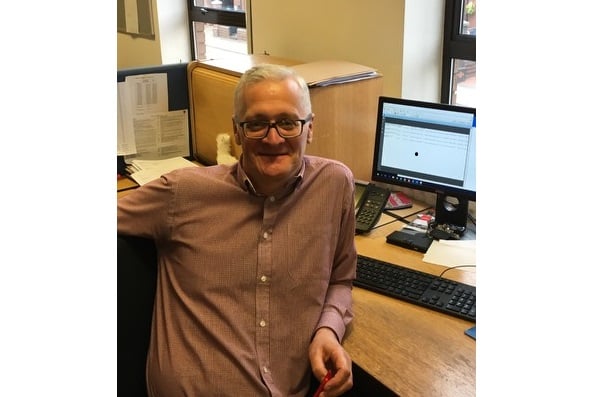And an underwriter cannot be results driven. Better to say no where the application is not in the customers best interest.

David Cox (pictured) is head of lending at the Tipton & Coseley Building Society
There is no doubt that the mortgage industry is changing at a rapid pace and clearly this is set to continue as lenders respond by offering a wide range of products to meet customer needs.
Just look at how the later life market has taken off over the past 12 months which has meant raising money in retirement much easier for the over 55s.
But how are mortgage underwriters responding to the challenge of change? We all know that underwriters are required to develop in-depth product and strict guideline knowledge.
However what personality characteristics are now needed to be an underwriter in the making so that they can really help and add value to the work of mortgage brokers in today's fast moving market?
Skills and behaviours
Todays underwriters must be willing to make strong reasoned decisions based on all facts, have an open mind and be willing to learn new things at all times.
This means striking a balance between strict requirements of lending against reasoned judgements.
Never have these types of skills become more relevant than when dealing with later life lending, where assessing ongoing affordability in terms of death of either borrower is paramount. This also means having a clear understanding of the complex pensions system, whether that is work pension transfers in the event of death or more widely inheritance tax and long-term care costs.
When processing later life and RIO applications, an underwriter also needs to weigh up whether or not an application meets policy by asking the right questions.
Does the applicant fully understand the commitment of taking on a mortgage? Are they being taken advantage of by any number of sources? Where is a Power of Attorney applicable? Should the applicant take independent benefit and taxation advice?
And an underwriter cannot be results driven. Yes there are lending targets in place and yes we do like to achieve them but not at any cost – better to say no where the application is not in the customers best interest.
Adding value
Relationships play a major role in any business transaction, but they are especially important when it comes to how underwriters interact with brokers. Regular communication is therefore critical between brokers, BDMs and underwriters in order to find the right solution for the customer.
We strongly believe in enabling brokers to access experienced manual underwriters who can help find a solution particularly for specialist and niche cases. On paper, the implications of some of the elements of a case can be lost, or it may superficially appear as something that’s outside of a lenders normal appetite. By sharing the full story, a manual underwriter can consider on a case by case basis. After all no two applications are the same and each has its own story to tell.
An underwriter must also be willing to challenge policy so that a solution can be found to satisfy the circumstances of a particular customer.
For example last year a broker approached the Tipton regarding the difficulties in placing a mortgage for a newly qualified dentist due to a lack of self-employed history. We worked as a team to uncover a solution and with our underwriters’ expertise were able to widen the scope of the policy to include this niche market. Within a matter of weeks we were able to provide the broker products, which met the needs of newly qualified dentists.
Future trends
Clearly there will still be a role for expertise-based case underwriting in the future but the demand for this will lessen, as it focuses in on a small number of exceptional cases rather than the norm. By contrast there will be increased demand for the statistical, data analytics and data engineering skills required to build portfolio-level technical underwriting and “street pricing” models, and to integrate increasing amounts of external data sources.
Culturally there will be a move away from a more localised, case-by-case approach, towards a more mass production, analytics-led environment that also incorporates some space for “test and learn” experimentation.
The nature of this work will be very different to the role of an underwriter today, but many of the core skills and insights will be transferable.



